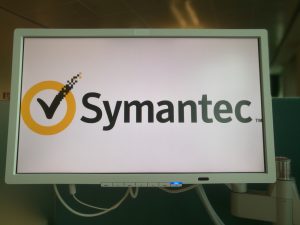Companies of all sizes are increasingly turning to software as a service providers to handle everything from customer management to data storage and analysis.
But that increased adoption has shone a light on a problem that Symantec is aiming to topple: a lag between when a security problem is spotted in the software and when the enterprise is alerted. According to Eric Andrews, vice president of cloud security at Mountain View, California-based Symantec, that lag can be anywhere from ten to twenty minutes. Symantec wants to shorten that and is updating its application programming interfaces or APIs to meet that end. Those are what the cloud providers use to communicate with Symantec. The idea is for Symantec to be able to react in seconds when they receive the information from the API. In an interview with LightReading, Andrews said the security company wants the technology to become part of industry standards so that security can be improved for all.
Symantec Rolls Out Cloud Security Products
Andrews pledge to improve the communication with APIs was just one of a series of cloud security focused announcements the company made last week as it aims to expand beyond the enterprise security market. The updates are designed to protect customers’ workloads running on Amazon Web Services and Microsoft Azure and to provide protection across mobile apps. Symantec also announced Managed Cloud Defense, which is a managed service that provides 24 by 7 monitoring, analytics, and response services. Symantec said the service “detects, protects and responds to cloud-based threats.” Claiming a first, Symantec also rolled out its CloudSOC CASB security product that provides visibility, security and threat protection for nearly all cloud applications.
Cloud Security A Way To Diversify
Symantec is making a big bet on cloud security as sales in its core enterprise business lags. Diversifying is necessary in order to drive more revenue. In August it announced it was laying off 1,000, amounting to 8% of its workforce. Weak revenue growth was to blame. In addition to its business challenges, it recently announced the close of an investigation into accounting practices at its Norton antivirus unit. In May, prompted by a whistleblower, Symantec launched the inquiry and announced in September it didn’t have to restate financial results other than a $13 million transaction. That lifted the stock, which has been under pressure all year, down more than 34%.
The accounting scandal and slumping stock have also brought out the activist investors with hedge fund Starboard amassing a 5.8% stake in the company. Starboard appointed three Starboard nominees to its board in September. Starboard hasn’t been too forthcoming with what changes it wants to see happen at Symantec but the thought is it can help it with any financial reporting issues and boost operations.
























